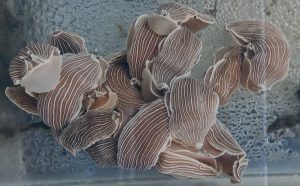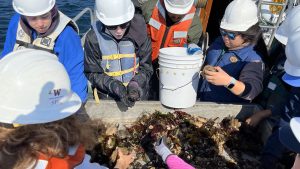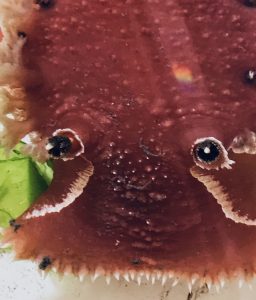FHL/BIOL 432 | Summer A 2025
Marine Invertebrate Zoology 2025
Marine Invertebrate Zoology will take advantage of the rich marine biota of the Friday Harbor and San Juan Island regions of the Salish Sea to introduce upper division undergraduates and graduate students to the principles of animal organization and biodiversity. Emphasis is placed on homology and convergence, diversity and complexity, form and function presented in a phylogenetic and ecological context through study of living specimens. In addition to the basics of invertebrate anatomy, development, ecology and evolution, lectures will also include analysis of evolutionary changes and discussion of the fossil record.
Students will gain hands-on experience in both the laboratory and field portions of the course. Lab is devoted to observing and learning the anatomy of local species, key identification features, use of taxonomic keys as well as additional methods of identification. Students will document and compare numerous invertebrates during the course, recording their observations in lab notebooks. Additionally, with facilitation by the instructors, students will design and carry out a research project during the course. Field activities introduce intertidal and subtidal collection techniques across a variety of local habitats including subtidal sampling aboard the Kittiwake.
Student learning objectives include:
- Understanding the characteristics and phylogenetic relationships of invertebrate phyla.
- Learn the anatomy and morphology of representative groups of invertebrates.
- Identify local species and apply taxonomic methods to new specimens.
- Explore the natural history and ecological roles of marine invertebrates.
Instructors for this course are:
- Dr. Megan Schwartz, University of Washington Tacoma, School of Interdisciplinary Arts and Sciences
- Dr. Rebecca Varney, University of California, Santa Barbara, Department of Ecology, Evolution and Marine Biology
Enrollment is limited to 20 students. No textbook is required for this course.

